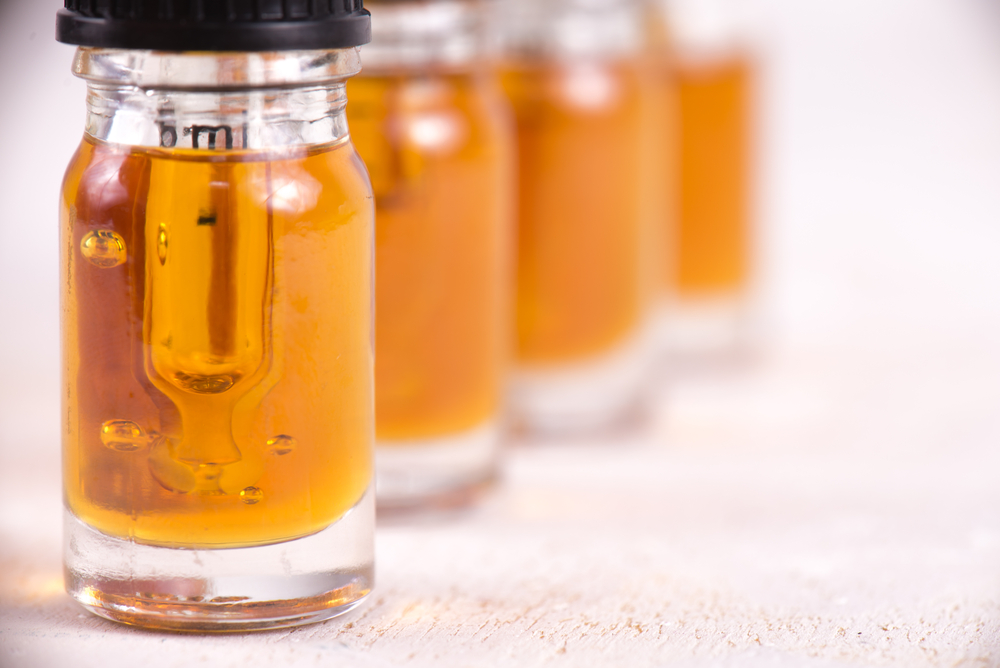State AG's office won't stop 6th grader from taking medical marijuana at school

Ashley Surin’s medical marijuana prescription consists of drops made from primarily CBD, an extract of marijuana shown to combat seizures, her father says. Shutterstock
The Illinois Attorney General’s Office and a Chicago suburban school district reached a temporary agreement to allow a sixth grade student to use her medical marijuana prescription on school grounds to treat her seizures..
The Chicago Tribune and USA Today had the story.
Ashley Surin was diagnosed with leukemia at age 2. She has been in remission since 2011, but her father, Jim Surin, says she has since suffered from seizures resulting from brain damage caused by the prescription chemotherapy drug methotrexate. Traditional anti-seizure medications didn’t stop Ashley from having daily seizures, her father said. Last year, she had a seizure in which she hit her head on the ground and sustained serious trauma, leading to brain surgery and a stint in a wheelchair.
The episode convinced Ashley’s parents to look for a different treatment. In December, Ashley was prescribed a ketogenic (high fat, low carbohydrate) diet and medical marijuana. Ashley’s medical marijuana prescription consists of drops made from primarily CBD, an extract of marijuana shown to combat seizures, Surin said. These drops are administered through patches that are placed on Ashley’s wrist and foot.
Ashley has now only had a single seizure in the past month as a result of her new treatment plan, her father said. However, Ashley’s school district said it could not allow her to bring her medical marijuana to school because of an Illinois has a law prohibiting students with such prescriptions from using them on school grounds. So Jim and Maureen Surin, represented by lawyer Steven Glink, filed a federal lawsuit against both the state and the school district, contending that the law violates the Individuals with Disabilities Education Act and the Americans with Disabilities Act.
In a court hearing held Jan. 12, Illinois Assistant Attorney General Thomas Ioppolo said that state of Illinois would not not prosecute the district and its employees for the administration of Ashley’s medical marijuana treatment on school grounds.
“As long as the district can be reassured that there will be no criminal or civil prosecution of the school nurse and district personnel, it satisfies the school district for the time being,” school district attorney Darcy Kriha told USA Today. “The school would like to see legislative change so just not Ashley can benefit, but other students can as well.”
Another hearing is scheduled for Friday, when the Illinois Attorney General’s office is expected to have its legal assessment of the case, the Tribune reported.


